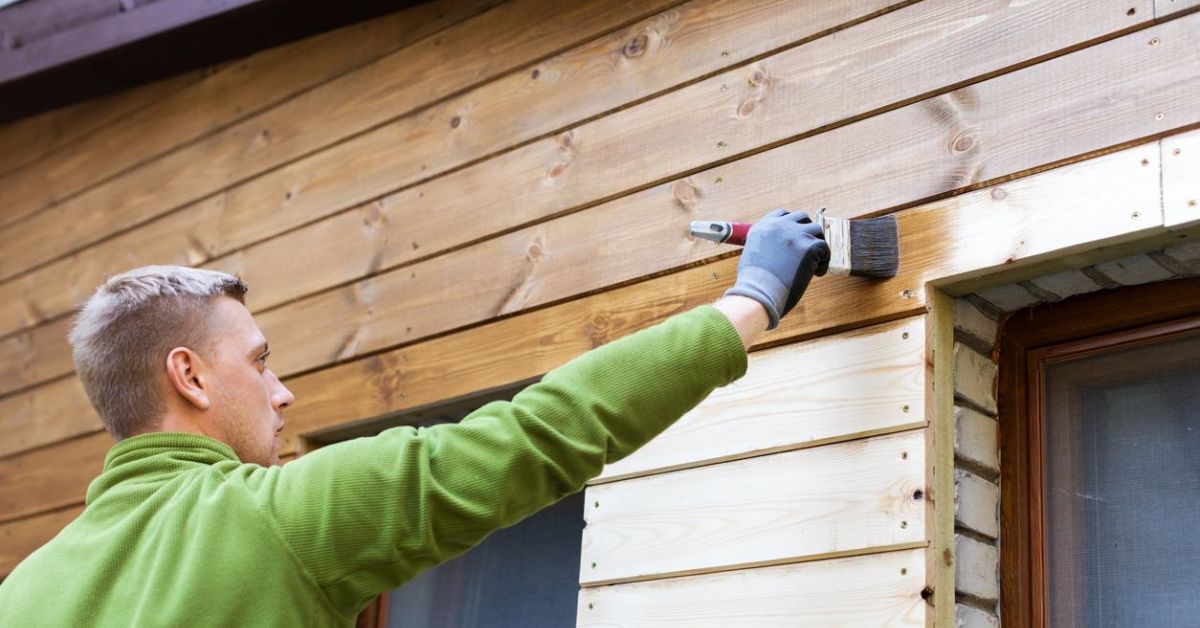Wood siding is one of the most popular and attractive exterior finishes for homes. It is a great way to add character to your home and is more affordable than other types of siding. Wood siding is also durable and sustainable, as it can last decades and be easily repaired or replaced.
The report posted by Forbes on July 25, 2022, stated that “Wood siding installation can cost anywhere between $1 and $6 per square foot.” However, the cost of wood siding is not constant there are other elements you should consider.
In this blog, we’ll go over the average budget of wood siding and the factors that can affect the total cost. So, let’s start!
Benefits of Wood Siding
Wood siding offers a range of advantages that contribute to its enduring popularity:
Natural Aesthetic
Wood’s innate warmth and beauty lend a timeless charm to homes, enhancing their visual appeal.
Versatility
Wood siding comes in various styles, such as horizontal, vertical, and shingle, enabling homeowners to achieve their desired look.
Customization
Wood can be stained or painted in multiple colors, allowing for personalized design and individuality.
Environmental Appeal
Sourced from renewable resources, wood is a sustainable option that aligns with eco-friendly building practices.
Insulation
Wood provides natural insulation, helping to regulate indoor temperatures and potentially reducing energy costs.
Longevity
With proper care and maintenance, wood siding can endure for decades, making it a durable investment. In addition, it will also increase the cost to replace wood siding for you.
Repairability
Damaged sections of wood siding are often easier to replace than other siding materials, minimizing repair costs.
Historical Authenticity
Wood siding can evoke a sense of tradition and historical authenticity, making it suitable for vintage homes.
Home Value
The allure of wood siding can increase the market value of a home, attracting potential buyers.
Age Gracefully
Over time, the wood develops a unique patina that adds character, enriching the home’s appearance.
Factors Influencing the Cost of Wood Siding
The expense of wood siding installation is influenced by several key factors that homeowners should consider:
Material Selection
The type and grade of wood chosen, such as cedar, redwood, or pine, significantly impact costs due to variations in durability and aesthetics.
Siding Style
Different styles like horizontal, vertical, and shingle siding have varying installation complexities and material requirements, affecting overall expenses.
Labor and Installation
Professional wood siding replacement cost ensures proper fit and durability, but labor costs can vary based on the location and complexity of the project.
Location and Regional Factors
Regional differences in material availability, labor rates, and climate conditions can lead to price variations.
Additional Features
Adding trim, moldings, and decorative elements increases the project’s complexity and subsequently influences costs.
Project Size
The total square footage of the siding project directly affects material quantities and labor hours, impacting the overall budget.
Preparation and Repairs
Addressing any underlying structural issues or the need for surface preparation before installation can contribute to costs.
Finishing and Treatments
Choosing paint, stain, or sealant options adds to the initial investment and ongoing maintenance considerations.
Average Costs of Wood Siding Replacement Cost
House Size & Layout
The size of your house directly impacts the amount of siding needed and, consequently, the replacement cost. Larger homes require more materials and labor. Additionally, the house layout, such as the number of corners and complex architectural features, can increase the project’s complexity and affect labor costs.
Number of Stories
Houses with multiple stories will generally have a higher cost to replace wood siding due to the increased height and the need for scaffolding or special equipment to access higher areas. More stories often mean more work for installation and potentially more waste removal.
Siding Quality or Grade
The quality and grade of wood siding you choose will significantly affect the overall cost. Higher-quality wood siding typically costs more upfront but is more durable and may require less maintenance. Lower-quality options might be cheaper initially but deteriorate more quickly, leading to higher long-term costs.
Season
The time of year you choose for siding replacement can impact costs. A Siding contractor might offer lower rates during off-peak seasons when demand is lower. However, weather conditions, such as extreme cold or rain, can affect the installation process and extend the project’s timeline.
Insulation
While not directly related to wood siding, upgrading insulation during the replacement project can provide energy savings in the long run. It might increase the clear-cut redwood siding cost but can offer improved comfort and reduced utility bills.
Cost Comparison: Wood Siding vs. Other Siding Materials
| Siding Material | Average Cost Per Square Foot | Pros | Cons |
| Wood Siding | $5 – $15 | Natural beauty can be painted or stained, environmentally friendly | Requires regular maintenance, susceptible to rot and pests |
| Vinyl Siding | $3 – $8 | Low maintenance, wide range of colors, affordable | Less visually appealing than wood, can fade over time |
| Fiber Cement | $5 – $12 | Resistant to rot, fire, and pests, can mimic wood or other textures | Installation can be more complex, higher upfront cost |
| Stucco | $6 – $9 | Durable, insulating properties, minimal maintenance | Prone to cracking, difficult repairs, limited design options |
| Brick | $10 – $20 | Extremely durable, timeless look, low maintenance | Expensive upfront cost, labor-intensive installation |
| Stone Veneer | $10 – $20 | Natural appearance, lightweight, less expensive than full stone | Installation can be complex, may not provide full insulation |
Final Words
The cost of wood siding can vary widely depending on several factors, such as the size of your house, the quality of the wood, architectural features, and the complexity of the installation. On average, wood siding can range from $5 to $15 per square foot.
However, it’s important to keep in mind that while wood siding offers timeless charm and can be customized with paint or stains, it requires regular maintenance and can be susceptible to pests and rot.
To make an informed decision, consider the unique aspects of your project and compare it with different types of roof tiles to create a harmonious and visually appealing exterior for your home.






